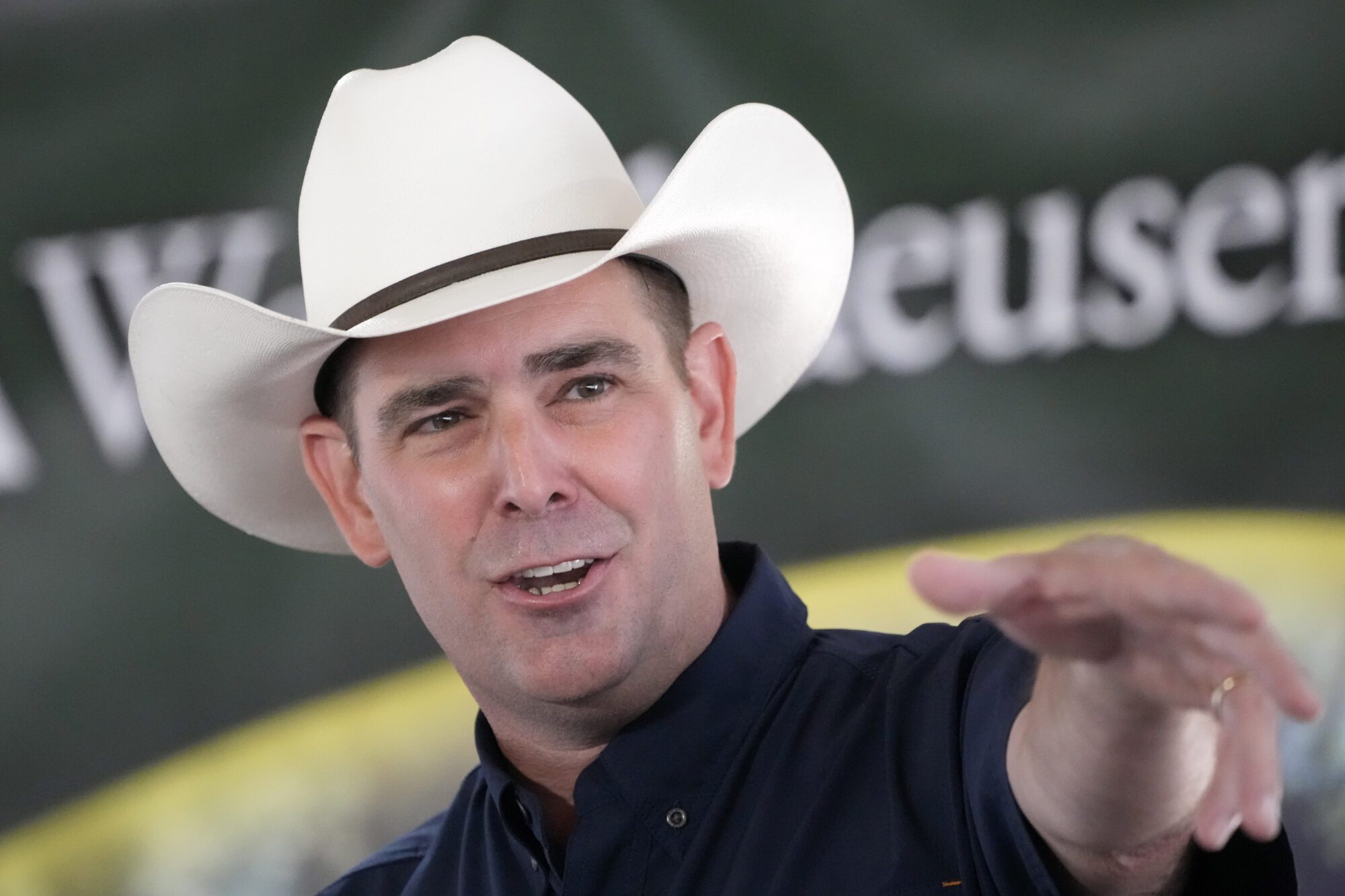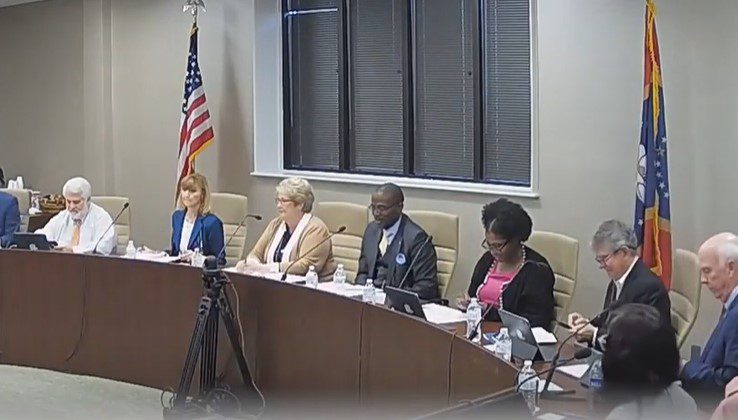
Mississippi's Republican Agriculture and Commerce Commissioner Andy Gipson addresses the crowd at the Neshoba County Fair in Philadelphia, Miss., Wednesday, July 26, 2023. (AP Photo/Rogelio V. Solis)
A new agricultural plan could cost the state between $100 to $400 million. Commissioner Gipson says it’s worth paying to ensure adequate food production.
During his speech at the Neshoba County Fair, Commissioner of Agriculture and Commerce Andy Gipson announced his proposal for a new agriculture infrastructure plan.
Commissioner Gipson, a Republican who is currently campaigning for re-election, said the number one question he has been asked on the campaign trail has to do with food supply challenges.
While Mississippi seems stable now, there are shortages throughout the world. Gipson said if the state wants to stay proactive against future shortages lawmakers need to invest in agriculture.
The Mississippi SAFE Plan, or Sustainable Agriculture Facilities Expansion Plan, is designed to support food resiliency across the state of Mississippi, according to Gipson. He says agriculture infrastructure has not been funded by the Legislature in 20 years. Gipson believes now is the time to do so.
The first term AG Commissioner believes his proposed investment is vital to ensuring that Mississippi avoids the potential food shortages impacting other parts of the world.
“I see storm clouds on the horizon,” he told reporters regarding future food accessibility. “Agriculture infrastructure is the most important infrastructure we have and it’s the most important investment we can make because we’ve got to eat.”
The plan would initiate three regional food hubs across the state, with one in North, Central and South Mississippi. It will also increase processing equipment that will address food deserts in the state. Gipson says this will expand food availability to hospitals and grocery stores.
His plan will also increase the emphasis on local farmers markets, livestock facilities and the Mississippi State Fairgrounds in Jackson. Gipson is imploring the Legislature to use some of the surplus in revenue toward further establishing Mississippi’s economic development into agriculture.
Gipson says farmers markets are in need of an update. There are many across the state of Mississippi, with the Mississippi Farmers Market located at the fair grounds.
The price tag, Gipson says, could be anywhere from $100 to $400 million in funding.
“If the Legislature doesn’t fund this, they can’t say I didn’t tell them,”said Gipson.
He said he has gone to the Legislature in the past about this issue, but said it didn’t sustain traction. He indicated he has the support of many Senators and Representatives to make it happen in 2024.
Gipson compared the cost for the program to other large expenditures the state makes annually, saying it will be a fraction of the funds put into systems like prisons, education or Medicaid. He said while all these avenues are important, people have to eat.
“Give this money back to the taxpayers in a meaningful way. It belongs to them anyway,” said Gipson.
The ag industry in Mississippi is booming. It’s the state’s largest industry. In total, agriculture in Mississippi represented $9.72 billion in commodities for the state in 2022. It accommodates over 400,000 direct and indirect jobs, accounting for $16.69 billion in wages and over $1 billion in exports.
Overall output of the industry is roughly $69.1 billion with the number one product being catfish. Sweet potatoes follow closely behind but the list also includes peanuts, soybeans, eggs, honey, corn and cattle.
The state has roughly 34,700 farms that occupy 10.4 million acres of land with an estimated value of $29 billion. Nearly 87% of those farms are family-owned. However, only 3% are able to sell directly to consumers. The average age of the farm owner is nearly 60 years old.
Interest in a career in agriculture continues to remain high. Nearly 4,000 students are currently enrolled in Ag Division Colleges at Mississippi State University. Gipson emphasized the need to ensure young people understand and have access to careers in the ag industry moving forward.











